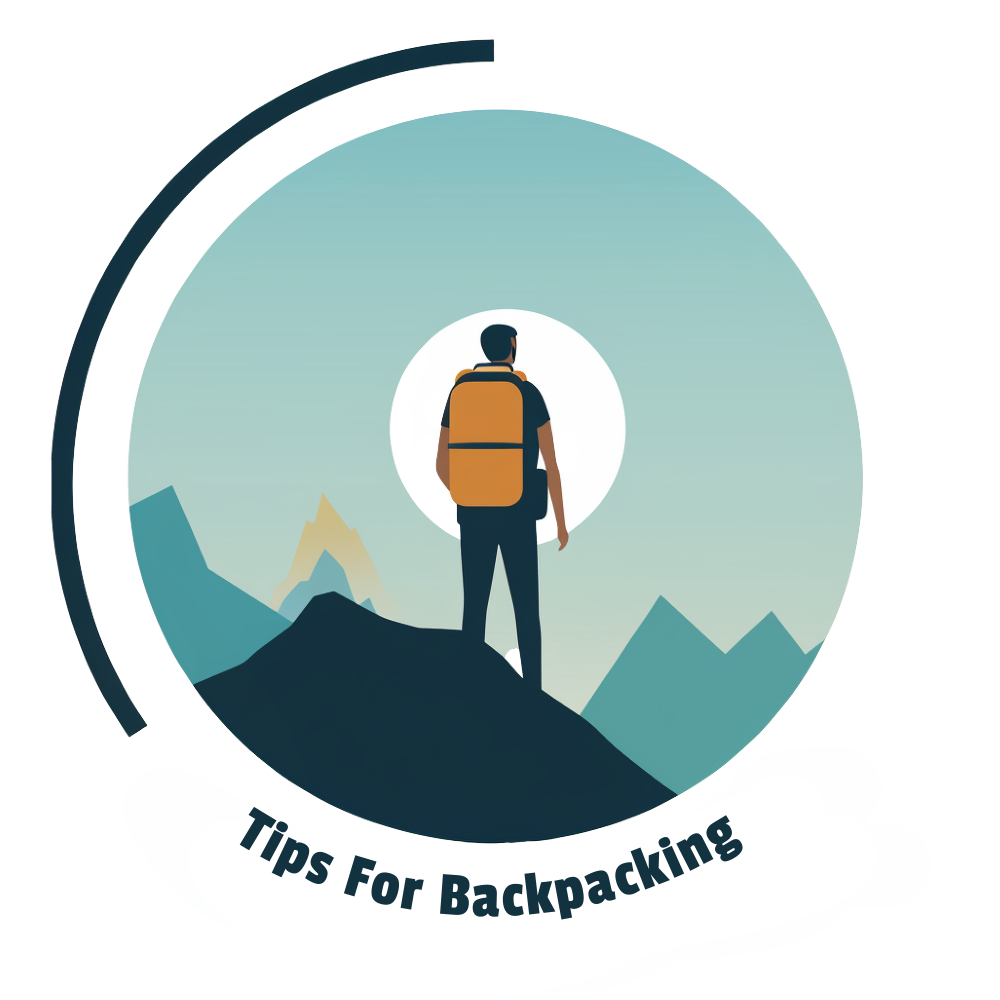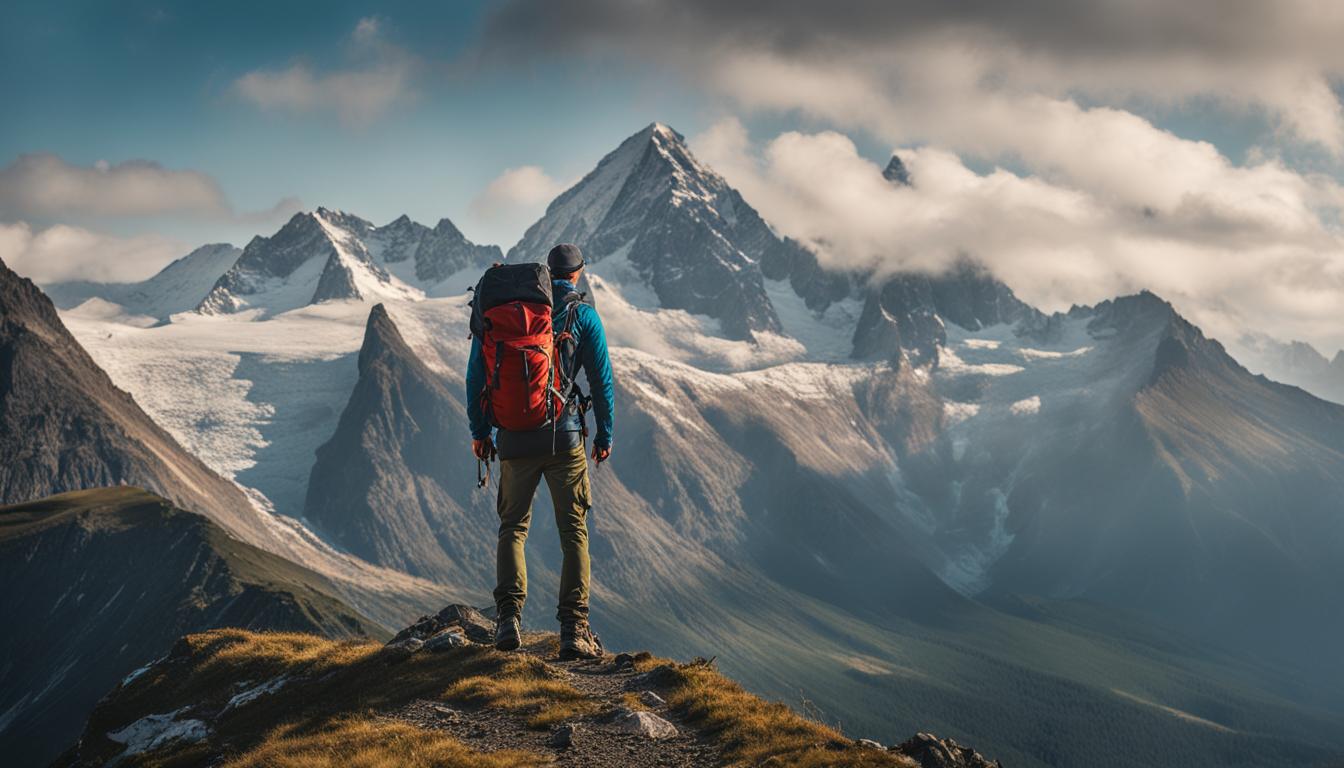Starting your backpacking journey can be intimidating, especially if you have no prior experience. However, with the right guidance and preparation, you can have a successful and enjoyable first backpacking trip. Avoid common mistakes and make the most of your adventure with these beginner-friendly tips.
Are you ready to embark on your first backpacking adventure? Whether you’re a nature enthusiast or simply looking for a new way to explore the great outdoors, backpacking can provide you with incredible experiences and memories that last a lifetime.
But where do you start if you have no backpacking experience? Don’t worry, I’ve got you covered. In this beginner’s guide to backpacking, I’ll share some valuable tips to help you get started on your backpacking journey. From avoiding common mistakes to choosing the right gear and clothing, you’ll gain the knowledge and confidence you need to make your first backpacking trip a success.
Key Takeaways:
- Starting backpacking with no experience is possible with proper preparation and guidance.
- Avoid common beginner backpacking mistakes, such as overpacking and choosing the wrong gear.
- Prioritize essential gear and clothing for backpacking to ensure a comfortable and safe trip.
- Start with shorter and easier trails to build your skills and confidence.
- Embrace the adventure and enjoy the beauty of the great outdoors!
Avoiding Common Beginner Backpacking Mistakes
When it comes to starting your backpacking journey, there are a few common mistakes that many beginners make. By being aware of these mistakes and taking steps to avoid them, you can make your first backpacking trip smoother and more enjoyable.
Overpacking for Backpacking
One of the most prevalent mistakes that beginner backpackers make is overpacking. It’s easy to get carried away and bring unnecessary items that end up weighing you down. To avoid this, prioritize essential gear and leave behind anything that isn’t crucial. Remember, the lighter your backpack, the more comfortable and enjoyable your hike will be.
Choosing the Right Gear for Backpacking
Another crucial aspect of backpacking is choosing the right gear. It’s essential to invest in lightweight and compact equipment that won’t add unnecessary weight to your pack. Research and compare different options, considering factors such as durability, functionality, and suitability for the terrain you’ll be hiking in. By choosing the right gear, you’ll enhance your overall backpacking experience.
Reducing Backpack Weight
In addition to selecting lightweight gear, there are other ways to reduce the weight of your backpack. Be mindful of the clothing and accessories you bring and opt for multipurpose items whenever possible. Consider sharing some gear, such as a tent or cooking equipment, with your hiking partner to lessen the load. Every ounce counts, and by reducing backpack weight, you’ll be able to hike longer distances and face more challenging trails.
Planning Backpacking Mileage
When planning your backpacking trip, it’s crucial to carefully consider your daily mileage. Beginners often make the mistake of attempting overly ambitious distances, resulting in exhaustion and potential injuries. Start with shorter distances and gradually increase as you gain more experience and confidence. Take into account the trail’s difficulty and elevation gain, as these factors can significantly impact your hiking pace.
By avoiding these common mistakes and focusing on proper gear selection, packing light, and planning your mileage effectively, you’ll set yourself up for a successful and enjoyable backpacking experience.
Essential Gear and Clothing for Backpacking
When it comes to backpacking, having the right gear and clothing can make all the difference in your comfort and overall experience. Here are some essential items you’ll want to consider for your backpacking adventures:
Backpacking Gear Checklist
Before you head out on the trails, make sure you have the following gear:
- A backpack: Look for a backpack that is durable, comfortable, and has enough room to carry all your essentials.
- A tent: Choose a lightweight and waterproof tent that suits the number of people in your group.
- A sleeping bag: Opt for a sleeping bag that is suitable for the expected temperatures during your trip.
- A sleeping pad: Invest in a sleeping pad to provide insulation and cushioning for a good night’s sleep.
- A stove: Select a backpacking stove that is lightweight, compact, and efficient for cooking meals.
- A water treatment system: Ensure you have a reliable method of purifying water to stay hydrated.
Clothing for Backpacking
Choosing the right clothing for your backpacking trip is essential for staying comfortable and protected from the elements. Consider these clothing items:
- Base layers: Invest in moisture-wicking and quick-drying base layers to regulate your body temperature.
- Hiking layers: Choose lightweight and breathable shirts, pants, and shorts for optimal comfort during hikes.
- Insulation: Pack a warm jacket or fleece to layer on colder nights or during chilly mornings.
- Rainwear: Be prepared for wet weather with a waterproof jacket and pants.
- Hiking socks: Invest in moisture-wicking and blister-resistant socks for long days on the trail.
- Hiking boots: Choose comfortable and supportive hiking boots that are suitable for the terrain you’ll be facing.
Remember to research and invest in high-quality gear and clothing that will withstand the demands of backpacking. Prioritize lightweight and durable options to minimize the weight of your pack and ensure you have a enjoyable and successful backpacking trip.
| Item | Description |
|---|---|
| Backpack | A durable and comfortable backpack with sufficient storage capacity. |
| Tent | A lightweight and waterproof tent suitable for the number of people in your group. |
| Sleeping bag | A sleeping bag that is appropriate for the expected temperatures during your trip. |
| Sleeping pad | A sleeping pad for insulation and comfort during sleep. |
| Stove | A compact and efficient backpacking stove for cooking meals. |
| Water treatment system | A reliable method of purifying water to stay hydrated. |
What are the essential tips for beginners to start backpacking?
For those looking to begin backpacking hobby steps, start by choosing a beginner-friendly trail. Invest in quality gear, including a proper backpack and lightweight essentials. Practice packing efficiently and learn basic wilderness first aid. Research trail regulations and leave-no-trace principles to minimize impact. Finally, always tell someone your planned route. Happy hiking!
Conclusion
Starting backpacking as a beginner can feel daunting, but don’t let that deter you! With the right mindset and preparation, it can be an amazing adventure. As a beginner, it’s important to take it slowly and start with shorter and easier trails. This will allow you to build your stamina and gain confidence before tackling more challenging routes.
Packing light is crucial for a successful backpacking trip. Avoid the temptation to bring unnecessary items and focus on the essentials. Remember, every ounce in your backpack adds up, so prioritize lightweight gear to lighten your load.
Lastly, safety should always be your top priority. Familiarize yourself with the trail you’ll be hiking, check the weather forecast, and bring a first aid kit. It’s also a good idea to let someone know your itinerary, just in case of an emergency.
So, if you’re ready to embark on your backpacking journey, starting as a beginner, don’t hesitate! Embrace the adventure, soak up the beauty of the great outdoors, and enjoy the experience of a lifetime!

